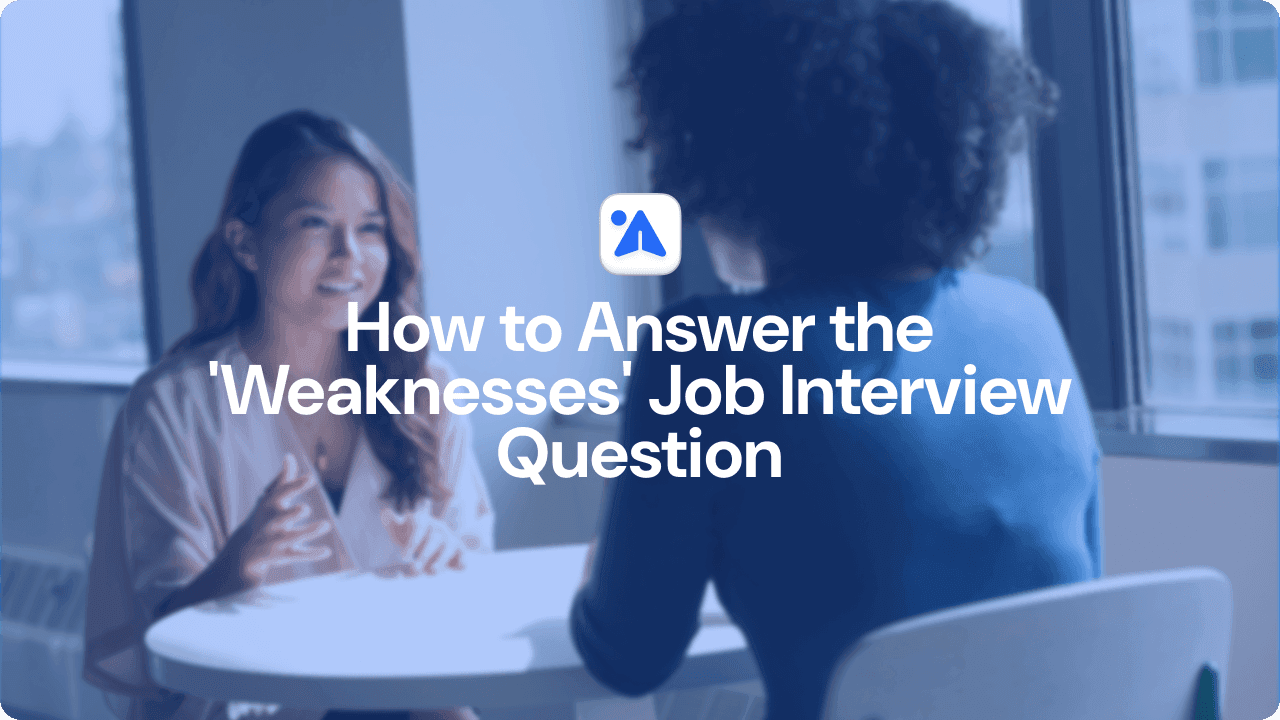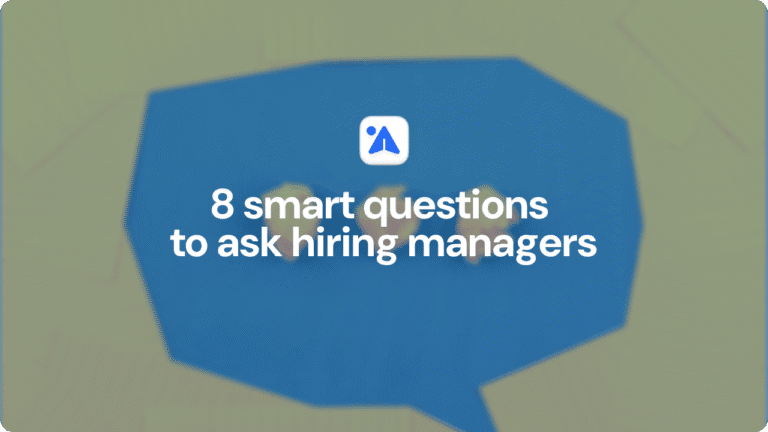Job interviews are nerve-wracking enough, and then comes the dreaded question:
“What is your greatest weakness?”
Cue the sweaty palms and mental scramble.
It’s one of the trickiest interview questions out there, and yet, it shows up time and time again. The good news? With the right approach—and a little practice—you can turn this potentially awkward moment into a genuine opportunity to impress.
Let’s break down why this question matters, what mistakes to avoid, and how to craft a thoughtful, authentic answer.
Why Do Recruiters Ask About Your Weaknesses?
It may seem like a trap, but this question isn’t meant to trip you up. Here’s what recruiters are really looking for:
- Self-awareness: Can you reflect honestly on your skills and behavior?
- Growth mindset: Are you open to learning and improving?
- Emotional intelligence: How do you handle constructive feedback or personal challenges?
According to Harvard Business Review, this question helps interviewers assess how well a candidate understands themselves—and whether they’re proactive about self-improvement.
Common Mistakes to Avoid When Answering
Before we get into how to answer well, let’s cover a few pitfalls to avoid:
❌ Trying to Dodge the Question
Saying “I don’t have any weaknesses” or “I’m just a perfectionist” can come across as evasive or disingenuous. Everyone has areas to work on.
❌ Oversharing or Being Too Honest
Revealing something that could directly harm your chances—like “I struggle with meeting deadlines” when applying for a time-sensitive role—can backfire.
❌ Giving a Cliché Answer
Generic responses like “I work too hard” or “I care too much” feel rehearsed and lack authenticity.
How to Craft a Strong, Genuine Answer
A good answer strikes a balance between honesty and professionalism. Here’s a simple 3-step framework:
1. Choose a Real (but Safe) Weakness
Pick a weakness that isn’t a core requirement of the job. For example:
- Public speaking (if you’re not in a speaking-heavy role)
- Delegating tasks (if you’re not applying for a managerial position)
- Getting lost in the details (if you’re in a big-picture strategy role)
Need help identifying one? Indeed’s guide offers a comprehensive list of common weaknesses you can draw inspiration from.
2. Show What You’ve Done to Improve
Demonstrate that you’ve taken steps to work on your weakness:
- Took a course
- Sought feedback
- Created a system to manage it
3. Reflect Growth and Awareness
Close your answer by showing how this journey has made you better at your job or more prepared for the role.
Good vs. Bad Examples of “What Is Your Greatest Weakness?”
❌ Bad Example:
“I’m a perfectionist. I always want things to be perfect, and sometimes I work too hard to get everything just right.”
Why it doesn’t work: It sounds like a humblebrag and lacks substance. The interviewer learns nothing about your self-awareness or growth.
✅ Good Example:
“Earlier in my career, I struggled with public speaking. Presenting to groups made me nervous, and I’d often rush through slides. I realized this was holding me back, so I enrolled in a public speaking course and started volunteering to present in team meetings. Over time, I’ve grown more confident and now even enjoy giving presentations.”
Why it works:
- It’s honest but not critical to most roles.
- Shows self-awareness.
- Demonstrates initiative and progress.
You can find more sample answers and analysis from The Muse’s interview prep guide.
Tailoring Your Answer to the Role
It’s important to align your answer with the job you’re interviewing for. Ask yourself:
- Is this weakness a red flag for this role?
- Can I show how I’ve actively addressed it?
For example, if you’re applying for a data analyst position, saying “I struggle with attention to detail” would be a red flag. But if you say, “I used to get overwhelmed by large datasets, but I’ve learned to use tools like Python and Excel filters to break down the information efficiently,” that shows growth and adaptability.
For role-specific insights, check out Glassdoor’s job interview advice hub.
Final Tips: Be Honest, But Strategic
Here are some extra pointers to help you craft your perfect response:
✅ Keep it short—1 to 2 minutes max
✅ Stay positive and confident in your tone
✅ Focus on what you’ve learned and how you’ve improved
✅ Practice out loud so it feels natural
Practice Your Answer with Interviewspilot
Knowing what to say is one thing. Saying it out loud—under pressure—is another.
That’s where Interviewspilot.com comes in.
Our AI-powered mock interview platform helps you rehearse tough questions like “What is your greatest weakness?” in a realistic, low-pressure environment. You’ll get instant feedback on your answers, including tone, clarity, and structure—so you can walk into your next interview confident and prepared.
Don’t leave your answers to chance.
Practice smarter with Interviewspilot.
Final Thoughts
The “weaknesses” job interview question doesn’t have to be a stumbling block. With the right mindset, honest reflection, and a few practice runs, you can use it to highlight your self-awareness and professional growth.
Remember: It’s not about being flawless—it’s about being real.





